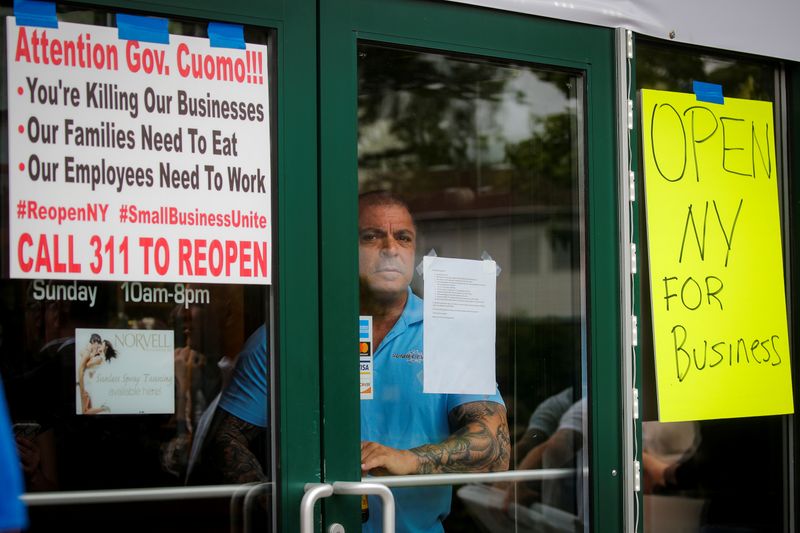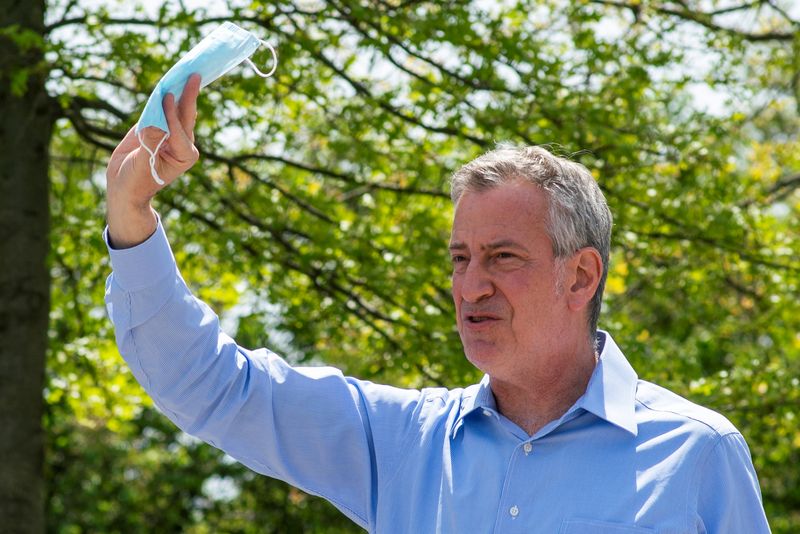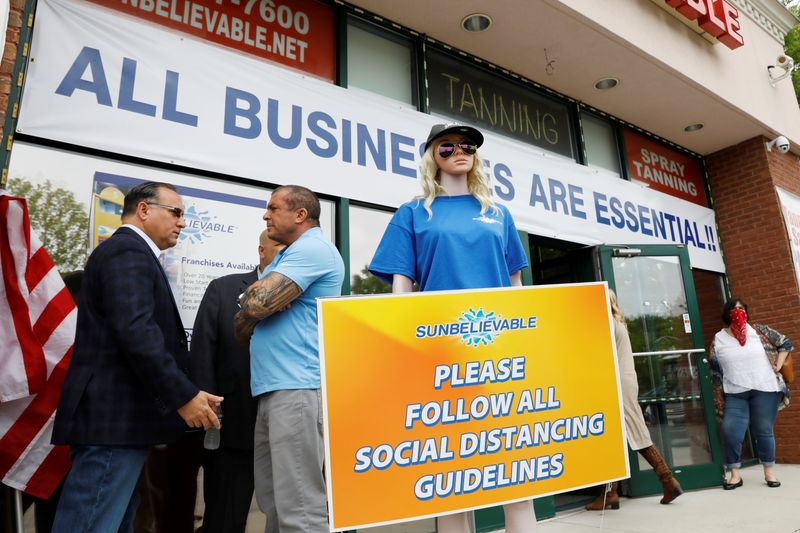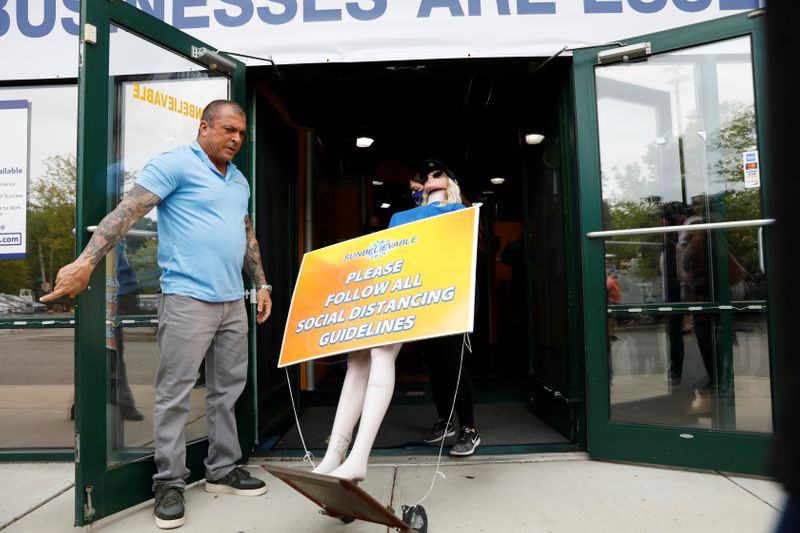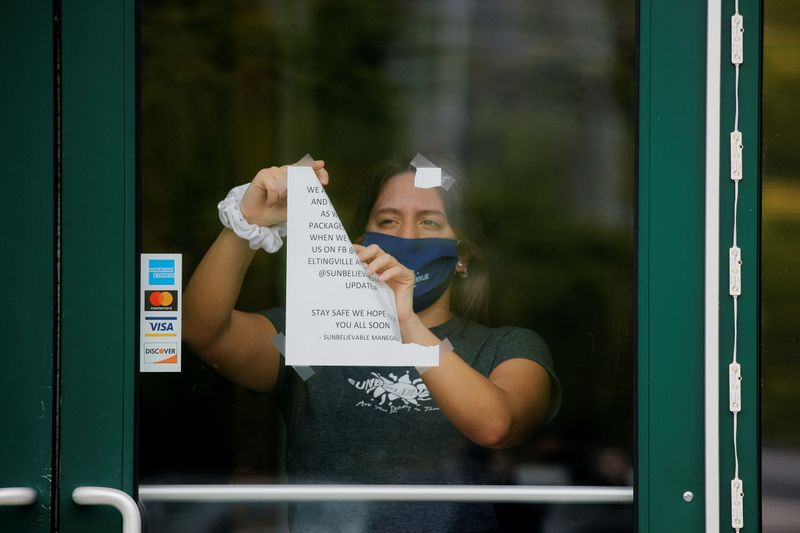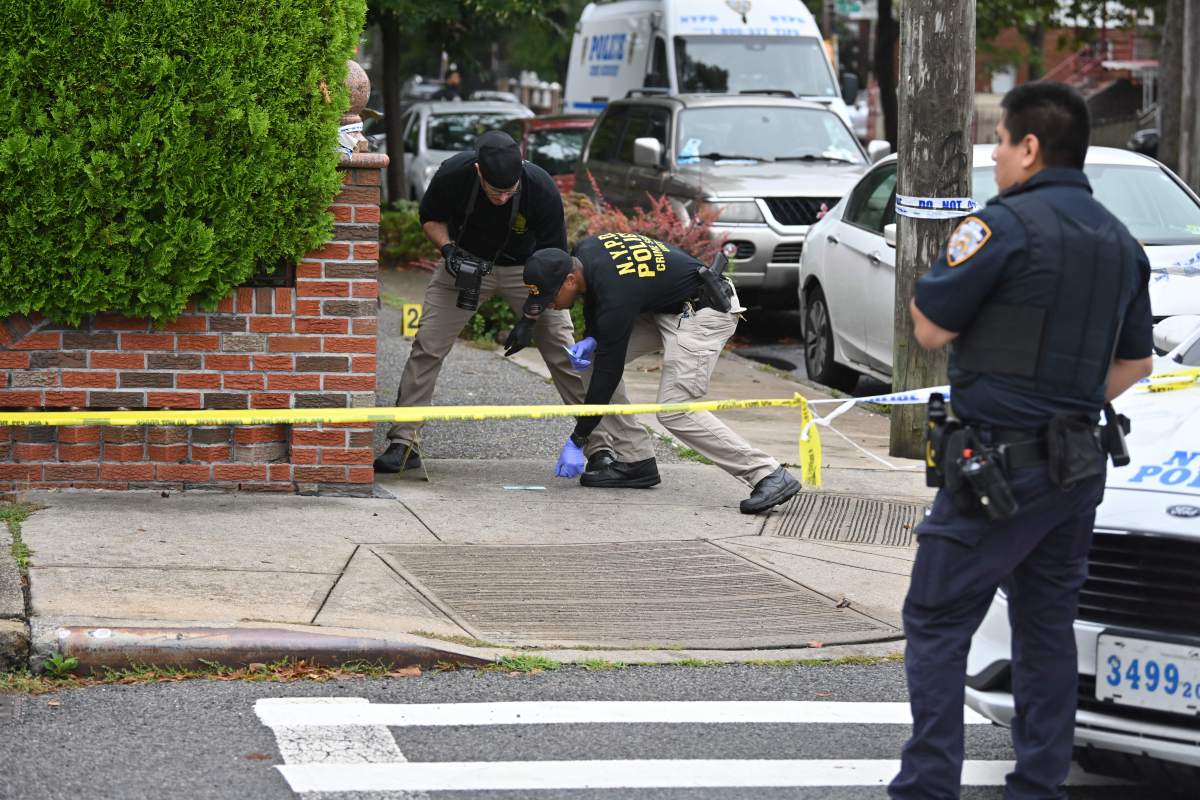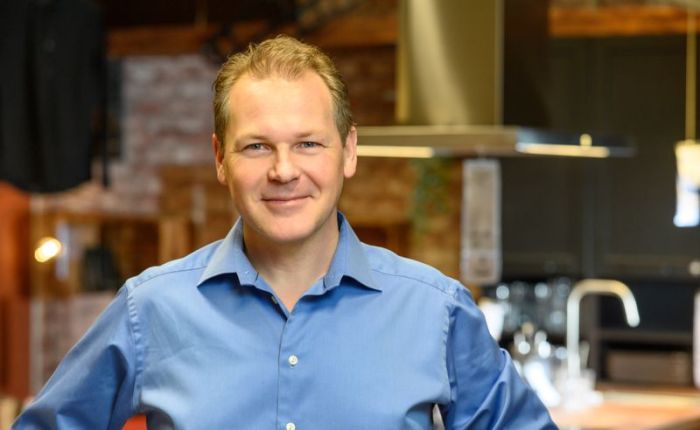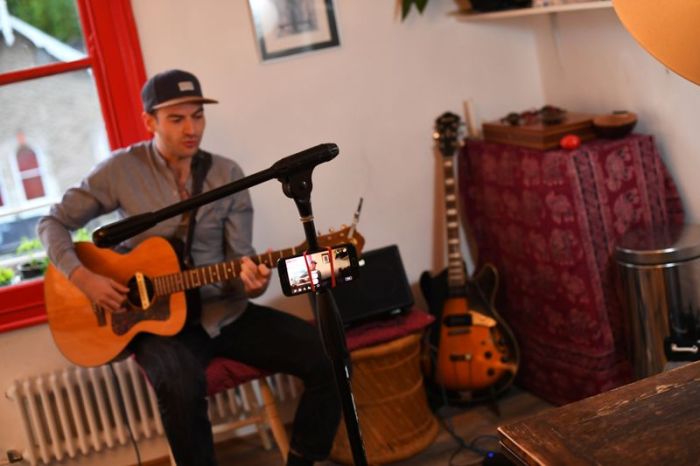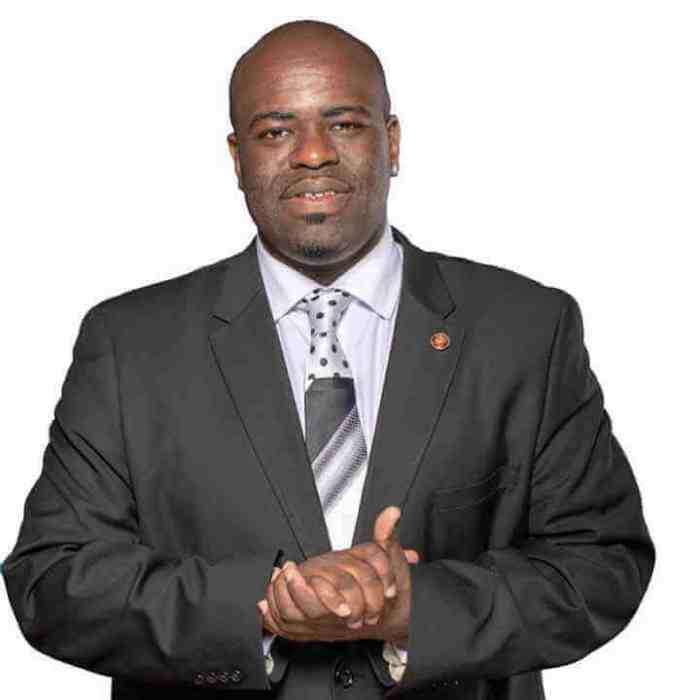NEW YORK (Reuters) – New York Mayor Bill de Blasio on Thursday outlined the first steps for reopening the United States’ most populous city, envisioning up to 400,000 people heading back to their workplaces, an easing of the lockdown that began in March.
De Blasio said he expected the reopening’s first phase to be announced by the second week of June and, in line with the state’s plan, would include four sectors: construction, manufacturing, wholesale suppliers and non-essential retail.
“We’re now actually in a position to start talking about opening things up, step by step, phase by phase,” he said at a daily briefing.
The city’s famed restaurants and bars will remain closed, except for takeout and delivery, but the City Council unveiled legislation to allow outdoor dining to help the industry recover from the economic crisis spurred by the coronavirus pandemic.
Outdoor spaces might be the only lifeline for many small restaurants that have struggled to stay afloat, said Sean Pearson, beverage manager at popular Mexican eatery La Esquina’s Soho location.
“It might be one of the only ways that they can recoup the revenue that’s been lost throughout this whole thing,” Pearson said in a phone interview. “I think as long as tables are at an appropriate distance and crowds are managed and maintained and … the level of cleanliness is upheld, I think it’s totally fine.”
COVID-19 has killed more than 20,000 of New York’s over 8 million people, making the city the American epicenter of the coronavirus pandemic.
With hospitalizations and deaths trending lower across New York state, all regions except the city – which is still working to increase hospital bed capacity and meet other criteria – have begun the process of restarting their economies.
The mayor added that authorities would monitor business compliance with reopening guidelines by conducting random visits, and handing out summonses in egregious cases.
At a separate briefing, City Council members unveiled legislation to allow restaurants and bars to set up chairs and tables on approved stretches of sidewalks, streets and parking lots while social distancing rules remained in force.
Council Speaker Corey Johnson criticized de Blasio for moving more slowly than other cities in repurposing outdoor spaces, and said the legislation was partly intended to force the mayor’s hand.
“New York will not be New York if we do not have restaurants and bars and an enlivened streetscape,” he told a news conference via Zoom. “If Cincinnati can do this, no offense to Cincinnati, New York City can do it.”
De Blasio said outdoor dining would be considered but that it would not be included in the first of the four phases in the state’s plan, which slates restaurants to reopen in the third phase.
Before the Memorial Day weekend, the mayor had said the sheriff’s office would patrol nine “bar-heavy” parts of the city after some bars, restaurants and their patrons appeared to be flouting guidelines, which include people keeping six feet apart.
Restaurants generally struggled to make much of a profit even when they could fill every seat inside, Andrew Rigie, executive director of the NYC Hospitality Alliance, a trade group supporting the City Council legislation, said in an interview.
The law would require the city to identify open spaces that can be used for outdoor dining, and New York City’s Health Department to create social distancing and cleaning protocols.
“We have to remember that New York City is the hospitality capital of the world,” Melba Wilson, the owner of Melba’s Restaurant in Manhattan’s famed Harlem neighborhood, said at the news conference on the legislation. “We cannot be followers on this front; we have to be leaders.”
(Additional reporting by Nathan Layne in Wilton, Connecticut; editing by Chizu Nomiyama, Jonathan Oatis and Marguerita Choy)

